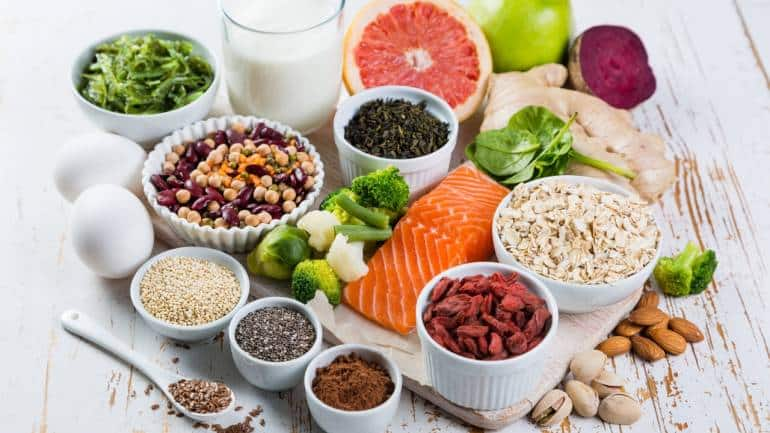In today’s world, where health trends are constantly evolving, we often hear about superfoods and supplements as ways to enhance our nutrition. But while they may seem interchangeable, they serve different purposes. Drawing from my experience as a health writer and what experts in the field emphasize, I’ll help you navigate the differences between superfoods and supplements, and guide you to a smarter, healthier choice.
What Are Superfoods?
Superfoods are more than just trendy buzzwords – they are naturally nutrient-rich foods known for their potential to offer a wide range of health benefits. These foods, mostly plant-based, are loaded with vitamins, minerals, and antioxidants. Some of the most commonly known superfoods include:
- Berries (like blueberries, raspberries, acai berries)
- Leafy greens (kale, spinach)
- Cruciferous vegetables (broccoli, cauliflower, Brussels sprouts)
- Whole grains (quinoa, brown rice)
- Nuts and seeds (almonds, chia seeds)
While these foods can boost your diet with essential nutrients, it’s crucial to understand that superfoods alone won’t transform your health. They should complement an already balanced diet. As I often remind my readers, health isn’t about finding a miracle food – it’s about consistent, wholesome eating habits.
What Are Supplements?
Supplements, on the other hand, are products designed to supplement your diet, not replace it. These may include vitamins, minerals, herbs, or amino acids in forms such as pills, capsules, powders, or liquids. Some popular examples are:
- Multivitamins
- Omega-3 fatty acids
- Protein powders
- Probiotics
- Vitamin D
When used correctly, supplements can be beneficial for addressing specific nutrient deficiencies. However, I often caution readers that not all supplements are created equal. Some might contain synthetic fillers or lower-quality ingredients, while others could cause side effects or interfere with medications you’re already taking. That’s why consulting with a healthcare professional before starting any supplement is key to staying safe and healthy.
Key Differences Between Superfoods and Supplements
There are several important distinctions between superfoods and supplements, each of which may affect your body differently:
- Production: Superfoods come from natural sources—grown, harvested, and unprocessed, while supplements are manufactured in a lab. Superfoods offer a more holistic nutritional profile, as they’re filled with beneficial compounds beyond just vitamins and minerals, like fiber and antioxidants.
- Absorption: Your body tends to absorb nutrients more efficiently when they come from whole foods. That’s because these foods contain additional compounds (like fiber or phytonutrients) that enhance nutrient absorption. Supplements, while useful, don’t always provide this natural synergy.
- Risks and Side Effects: Superfoods, when eaten in moderation, pose little risk. However, supplements can sometimes cause issues, especially when taken in excess or without guidance. For instance, fat-soluble vitamins like A, D, E, and K can accumulate in the body and lead to toxicity if not carefully monitored.
Which One Is Better for You?
The question of whether superfoods or supplements are better for you depends on your unique needs and circumstances. Let’s break it down:
- Dietary Needs: If you have specific deficiencies (for example, if you’re vegan and need vitamin B12), supplements might be a necessary addition to your diet. On the other hand, if you’re looking for more general health benefits, adding more superfoods to your meals could provide that boost.
- Lifestyle: Busy lifestyles sometimes mean that you may not always have the time to cook nutrient-dense meals. In such cases, a high-quality supplement can help fill those gaps. However, I always recommend making an effort to incorporate fresh foods whenever possible.
- Budget: Let’s face it – superfoods can be pricey, especially those that are marketed as “exotic” or trendy. Supplements might be a more affordable and convenient option if cost is a concern. Just remember to opt for reputable brands.
In my experience, finding balance is key. Superfoods can be powerful when incorporated regularly into your diet, while supplements can provide targeted support when necessary. But don’t rely on either one exclusively – variety and moderation in your diet is the real secret to good health.
Final Thoughts
Superfoods and supplements are both valuable tools in our quest for better health. Whether you choose to focus on whole foods or add supplements to your routine, the goal should always be to support a well-rounded, balanced diet. And as I always tell my readers, before making any significant changes to your diet or supplementation, check with a healthcare provider. What works for someone else might not be what’s best for you.
Good health is about making informed, thoughtful choices – and that includes deciding when to eat your nutrients and when to take them in supplement form.

